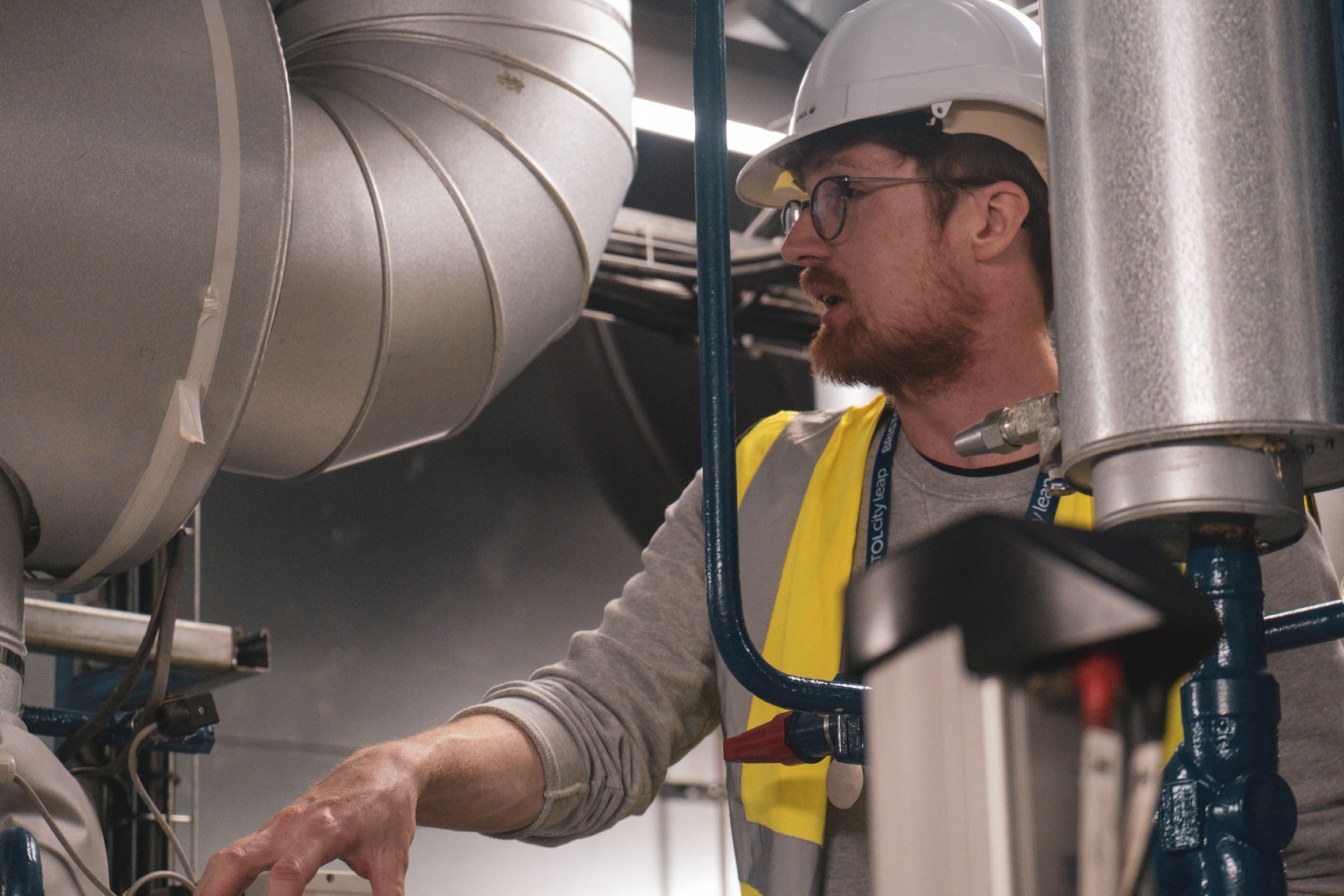Bristol City Leap: UK's largest water source heat pump will power 12,000 homes
The project is aiming to achieve net zero emissions in Bristol by 2030 by investing over £1billion in renewable energy infrastructures, including this water source heat pump

The largest water source heat pump in the UK is being installed in Bristol for £300 million, which will provide power for 12,000 homes.
The installation by Swedish multinational power company Vattenfall Heat will increase Bristol's heat pump infrastructure to create a single Bristol Heat Network by working with Bristol City Council.
The installation forms part of the 'Bristol City Leap' scheme that aims to invest over £1 billion into green energy infrastructure, such as solar, wind, heat networks, ground and air source heat pumps and energy efficiency measures in an effort to make the city net zero by 2030.
What is the 'Bristol City Leap'?
The £300 million investment from Swedish power company Vattenfall forms part of a wider investment towards the city of Bristol called 'Bristol City Leap'.
Bristol City Leap is a partnership between Bristol City Council and Ameresco Ltd, which provide renewable energy services, aiming to increase green energy investment in Bristol.
Over the next five years, Bristol City Leap will invest nearly £500 million into low carbon energy infrastructure, such as solar, wind, heat networks, heat pumps and energy efficiency measures in order to become carbon neutral by 2030.

What is a water source heat pump?
A water source heat pump (WSHP) operates by harnessing the thermal energy present in water to supply warmth and hot water for residential use.
Get the Homebuilding & Renovating Newsletter
Bring your dream home to life with expert advice, how to guides and design inspiration. Sign up for our newsletter and get two free tickets to a Homebuilding & Renovating Show near you.
Similar to air source heat pumps, a WSHP can draw energy from water even when its temperature is lower than the desired indoor air temperature, converting this energy into heat.
Two primary designs exist for WSHPs: closed loop systems and open loop systems. Closed loop systems are implemented in bodies of water such as lakes, lochs, or sizable ponds. In contrast, open loop systems, like the one being established in Bristol, are used near rivers or in locations with suitable geological conditions, often involving boreholes.
Over £1bn investment in Bristol's heat networks
The installation of the UK's largest WSHP is part of a larger collaboration to speed up green energy efforts in Bristol.
Bristol Council aim to enhance the current heating network, establish new ones, and link them to form a single Bristol Heat Network, as well as numerous other projects across the UK.
Vattenfall's investment of over £300 million in expanding Bristol's district heating system aims to provide low-carbon heat to approximately 12,000 homes.
Dom Barton, Regional Director for Bristol, Vattenfall Heat UK, stated: “Bristol, a city renowned for its strong climate ambitions, has taken a leading role in the fight against climate change within the UK. Being the first city to declare a climate emergency in 2018, it has since set an ambitious target of achieving net zero emissions by 2030.
"Key to this endeavour is the groundbreaking initiative, Bristol City Leap, a city-level partnership that has attracted over £1 billion in investment to support Bristol's drive towards carbon neutrality and climate resilience."
Barton explained how "district heating" will be used in this project, and potentially others, by gathering "waste heat", which is where: “Heat is captured and used to heat a network of insulated underground pipes, which transport heated water to buildings to provide heating and hot water. The potential to scale up district heating is huge, with half of all UK buildings in areas suitable for a district heating network."
Other UK cities 'need to follow Bristol’s lead'
This commitment towards exemplifies how other cities could soon introduce similar measures in order to meet their net zero targets.
Other examples of largescale renewable energy projects include a geothermal energy heat installation heating 3,800 homes in Cornwall, sixty 240-metre-deep boreholes being dug under London for new heat pumps and the world's first village using a shared "community" of boreholes dug under the road in Stithians.
This latest installation of the UK's largest single water source heat pump at Bristol's Castle Park Energy Centre, Barton claims is a "significant milestone" in preparing the UK for the 2025 gas boiler ban, whilst "fostering urban regeneration, and reducing air pollution".
Barton added: “Vattenfall’s partnership with Bristol City Leap is leading the way for district heating in the UK, delivering critical climate impact and important social benefits. The heating sector accounts for almost one third of the UK’s annual carbon footprint, and it’s clear that the UK is not on track to reach its legally binding target of net zero carbon emissions by 2050.
“Other UK cities urgently need to follow Bristol’s lead in adopting district heating and accelerating the transition to low carbon, renewable and equitable energy for all.”

News Editor Joseph has previously written for Today’s Media and Chambers & Partners, focusing on news for conveyancers and industry professionals. Joseph has just started his own self build project, building his own home on his family’s farm with planning permission for a timber frame, three-bedroom house in a one-acre field. The foundation work has already begun and he hopes to have the home built in the next year. Prior to this he renovated his family's home as well as doing several DIY projects, including installing a shower, building sheds, and livestock fences and shelters for the farm’s animals. Outside of homebuilding, Joseph loves rugby and has written for Rugby World, the world’s largest rugby magazine.
